Reading from the Synaxarion:
On the Sunday that falls from the 13th to the 19th of the present month, we chant the Service to the Holy and God-bearing Fathers who came together in the Seven Ecumenical Councils, that is:
– the First Council, of the 318 Holy Fathers who assembled in Nicaea in 325 to condemn Arius, who denied that the Son of God is consubstantial with the Father; the Fathers of the First Council also ordained that the whole Church should celebrate Pascha according to the same reckoning;
– the Second Council, of the 150 Holy Fathers who assembled in Constantinople in 381 to condemn Macedonius, Patriarch of Constantinople, who denied the Divinity of the Holy Spirit;
– the Third Council, of the 200 Holy Fathers who assembled in Ephesus in 431, to condemn Nestorius, Patriarch of Constantinople, who called Christ a mere man and not God incarnate;
– the Fourth Council, of the 630 Holy Fathers who assembled in Chalcedon in 451, to condemn Eutyches, who taught that there was only one nature, the divine, in Christ after the Incarnation, and Dioscorus, Patriarch of Alexandria, who illegally received Eutyches back into communion and deposed Saint Flavian, Patriarch of Constantinople, who had excommunicated Eutyches;
– the Fifth Council in 535, of the 165 Holy Fathers who assembled in Constantinople for the second time to condemn (which we celebrate on July 25th)
Origen and Theodore of Mopsuestia, the teacher of Nestorius;
– the Sixth Council in 680, of the 170 Holy Fathers who assembled in Constantinople for the third time, to condemn the Monothelite heresy, which taught that there is in Christ but one will, the divine; and
– the Seventh Council in 787, of the 350 Holy Fathers who assembled in Nicaea for the second time to condemn Iconoclasm.
On the Importance of Holy Tradition
By Father George Calciu
Faith has its place in a balanced Orthodox environment, and a natural relationship with the world. What I mean is that we live in the world and must do what it takes to survive in it, but not at the cost of compromises, betrayals, or renouncing Christ. Orthodoxy gives us balance.
We (the cradle Orthodox), possess a very ancient tradition. I look at the American Orthodox. They are very passionate for Orthodoxy, but they’re locking Holy Tradition. So, in a sense, they are streams branching off the Russian, Bulgarian, Serbian, or Romanian tradition, since they do not have that traditional instruction from their ancestors, as we do. We stand on a firm rock: the teachings of the Holy Fathers, the ascetic experience of the desert’ monks, the entire Orthodox Tradition handed to us in patristic books or by Oral tradition; and these, regardless of our sins, constitutes a stone foundation, that unshaken ground where our feet may walk and not sink, like a boat in which Jesus is present. We do not sink because we hold fast to tradition. Yes, we are sinners, but God preserves us when we follow Him and the teachings of the Holy Fathers, even though sometimes we fail… But is there anyone without sin? Is there anyone who has not been tempted? Who does not dirty his soul with evil thoughts, deeds or lust? But aside from all these failings, we have an unshaking ground.
This ground is the Orthodox Church, the tradition of the Holy Fathers, the Seven Ecumenical Councils, the struggle (experience) of the saints in the wilderness of Thebaida, Sinai…,in our country (Father refers here to Romania, his former country – tr.n.), and the monasteries found everywhere. Having this reaches, we do not sink.
“If I keep silent, I’ll be no different from unbelievers”
The following beautiful story is found in the Paterikon (collection of the old sayings of the Desert Fathers – tr.n.): the devil – taking the appearance of a man – came to a very holy monk and asked him: “Are you that monk…I heard off?” “This is him.” “That monk, the liar?” . ” Yes, that’s me.” ” That wicked monk?” “Yes.” “The greedy monk?”. “Yes, indeed.” “The liar who teaches the word of God, but does not live it? ” “Yes , I am one.” “That monk, the heretic?” “No. Such, I am not!”
So here is how far he would go! He accepted everything that demeaned him, but when he was tempted on heresy, he stood fast and said no. This is where the limit of tolerance is. When that tolerance goes beyond God and the Truth of our Christian faith, it becomes a blasphemy to our Lord and our soul.
The Holy Fathers had settled in Councils all aspects of church dogma that nowadays are trampled on. In the decisions of the Holy Synods many things (happening today), were foreseen: from heresies, ecumenism, denying God, public fornication, accepting as virtues: vices and perversions, to the fact of being proud to declare yourself gay. There’s no passion that the Holy Councils have not anticipated or spoken on, as they declared: him who does these is a heretic and a lunatic departed from faith and the Church .
Even (some of) our hierarchs have lost their sense of Christian dignity, which is incalculably greater than any human dignity. They place themselves under the attachment or helm of one or some another powerful elites of the day. I was greatly distressed by that. I had not yet wrote to the Patriarch (the former patriarch of Romania, now with the Lord tr.n), but I ‘ll write him later; for in a discussion I had with His Beatitude, I said:
“Your Holiness, God gave me a gift. He gave me “the gift” of suffering and through it I became wiser. Perhaps not wise enough considering all that I’ve been through (father is referring here to his 21 years of suffering in the communist gulag for having confessed the Christian faith – tr.n.), but the wisdom that God grant me gives me strength to speak up this word for Christ, for the Church and my nation;” and now I have to confess, for if I keep silent I’ll be like everyone else (who does not confesses Christ – tr.n). Because tolerance has a limit: that is not pushing beyond faith, or God. Beyond that, there is no tolerance.
Many hierarchies are silent, because “the time has come” (cf. Apoc) when if you confess (the Truth), will not be accepted in Europe (in the European Union – tr.n)! Such as this Europe means the ultimate paradise!! Will we not be accepted in Europe? (transl. note: the EU). Very good. Then know, we’ll be accepted in heaven. There (is the place), where God receives us. […]
I often wrote against ecumenism. I think I said everything I could have about this “heresy of our century ” as the Greek monks call it. I met many of the leaders of the “Ecumenist Group” and saw their compromised soul for the politics and their irrepressible desire to compromise others, even the Orthodox groups which defend the purity of faith. Whereever I go, the monks are wondering with pain and anxiety: “Where are we going with this? And to what limit shall we accept hierarchical compromise? Should we seek another jurisdiction? Shall we run towards the mountains, the forests and desert in order to be saved and escape this satanic temptation? Will we be hunted like long ago the defenders of icons by the iconoclasts? ” …
What I want to stress here is perhaps not the danger of ecumenism in itself – maybe things are not quite so serious as they may seem – but the distress that Satan is causing in the souls of monks through this ecumenism, and I mean not only in the hearts of monks from Romania, but throughout the orthodox world. This leads to anxieties and fear, and raises concerns for personal salvation from worldly dangers at the expense of sanctity and, the beginning of many compromises that once started, no-one knows where they will stop…
What I wrote here, I wanted to express to the hierarchs. But I think such letter would be doomed to be forgotten due to lack of interest and may be a cause for anger. What remains for us is prayer for the guarding of monasteries, for the inner peace of the monks and for the un-disturbance of the Orthodox life in our country and the world.
(Taken from Fr George’ Living Words, translated by EC, to be continued)


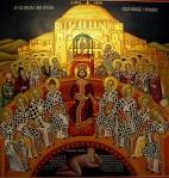 Christian Dogma
Christian Dogma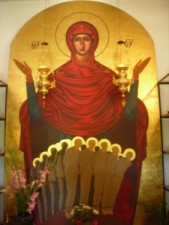 Christian Martyrs
Christian Martyrs Christian Orthodox Churches and Monasteries
Christian Orthodox Churches and Monasteries Christian Sermons and News
Christian Sermons and News Church's Teachings on Fasting
Church's Teachings on Fasting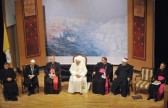 Ecumenism – a Great Heresy
Ecumenism – a Great Heresy Father George Calciu
Father George Calciu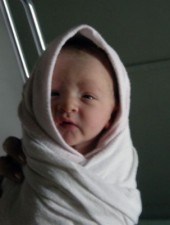 Life_a Sacred Gift form God
Life_a Sacred Gift form God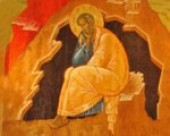 Orthodox Saints and Church Fathers
Orthodox Saints and Church Fathers Spiritual Elders
Spiritual Elders Daily Bible Readings
Daily Bible Readings Journey to Orthodoxy
Journey to Orthodoxy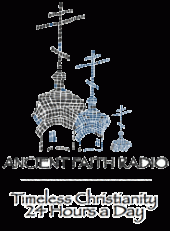 Listen to Ancient Faith Radio
Listen to Ancient Faith Radio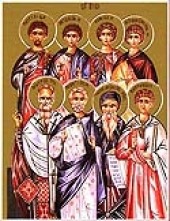 Orthodox Calendar of Feasts and Saints
Orthodox Calendar of Feasts and Saints Orthodox Christian Mission Center
Orthodox Christian Mission Center Orthodox Institute
Orthodox Institute OrthodoxChristianNetwork TV
OrthodoxChristianNetwork TV
1 comment
Comments feed for this article
August 26, 2010 at 2:27 PM
mode20100
A+ would read again